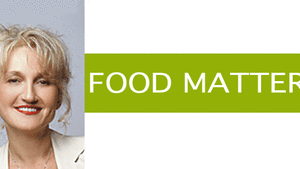If you suffer from symptoms like eczema, colic, acne, loose stools, bloating or sinus problems, you may have an allergy to dairy products—a condition that can be life-threatening for some.
Going dairy-free is not as hard as you may think, and it could even reduce your risk of other health problems.
What it is?
A dairy-free diet is much more than just avoiding lactose—the sugar in dairy products. Dairy contains more than 25 molecules that have the potential to elicit an allergic reaction. People with a true allergy to dairy need to eliminate all dairy products and dairy ingredients from their diet.
Many people without any allergy to dairy also choose to go dairy free (or low dairy) in order to reduce their intake of saturated fat and cholesterol or in the hope of avoiding migraine headaches, prostate cancer, ovarian cancer and some other conditions that have been linked with dairy intake.
Tips for dairy-free eating
- Replace all dairy foods such as milk, cheese, ice-cream, cream, custard and yoghurt (including those from goats and sheep) with calcium and vitamin B12-fortified alternatives. Carefully check labels, as products like soy cheese may still contain dairy ingredients. Tofu can be used in some recipes to replace cheese.
- Use fresh avocado, hummus, eggplant spread or a dairy-free margarine in place of butter and margarine that has some dairy as an ingredient.
- Obtain a list of dairy ingredients to avoid from a qualified dietitian or reputable website. Then inspect all packaged foods for hidden dairy ingredients. These include bread, biscuits, bars, chocolate, savoury snacks and mayonnaise. Most processed foods contain at least one dairy ingredient, such as milk solids, rennet, lactalbumin, caseinates, whey, cream or ghee.
- Choose dairy-free foods when eating out, such as a burrito with salad and avocado (hold the cheese); tofu and vegetable stir-fry on steamed rice; bean salad with dairy-free dressing; fresh Vietnamese spring or California rolls (sushi rolls).
- Get professional advice about taking a supplement if your intake of vitamin B12 and dietary calcium are consistently low.







